Experts share 11 ways you could be confusing your dog, and how to stop

Insider asked experts about the ways that dog owners may be confusing their pets.
Giving a dog the wrong kind of name can lead to lifelong confusion.
Letting them play with your fingers or clothing can backfire later on.
They may be your best friend, but that doesn't mean your dog will always understand you.
Insider asked veterinarians and dog behaviorists to call out a few ways that owners often puzzle and overwhelm their furry friends.
Read on for 11 ways you may be confusing your dog, and what to do instead.
You gave them a confusing name.
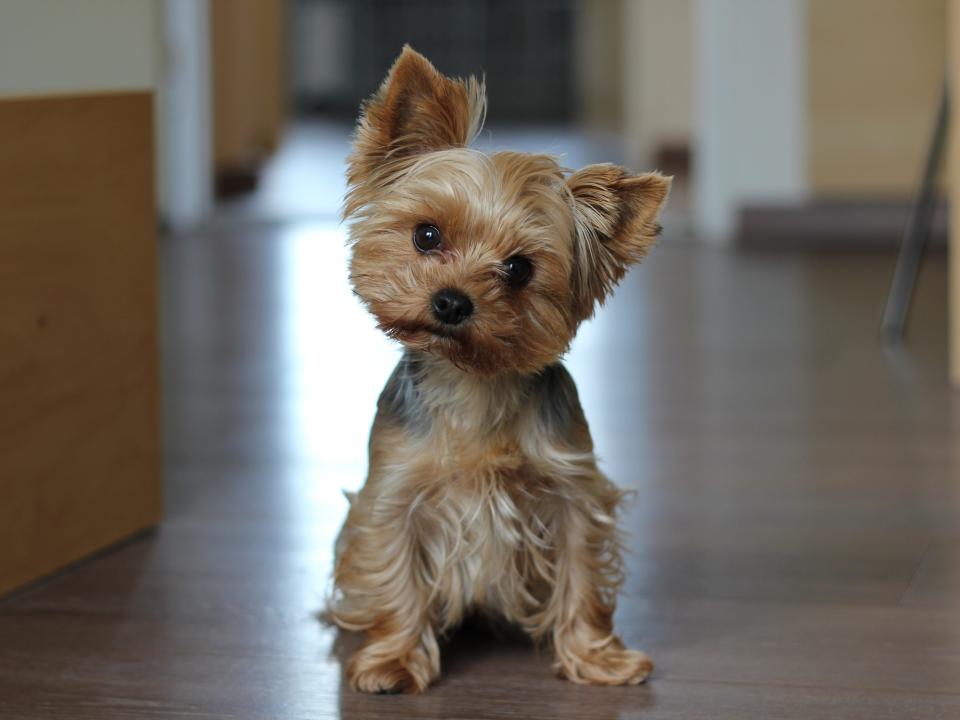
Antje Joslin, veterinarian for Dogtopia, told Insider that a dog's name should be simple enough for them to understand when they're being called.
"You will want the name to start with a letter that has a sharp, distinct sound. A name that starts with a 'D,' 'T,' or 'K' sound will be easy for your dog to learn," Joslin said.
A name that starts with an "S" or "F," which are softer sounds, could also be more difficult for your dog to understand.
"Avoid any names that sound similar or rhyme with the most common dog commands," she added. "Names that sound like 'sit,' 'stay,' 'heel,' 'no,' and 'come' could easily confuse your pup."
You're putting your fingers in their mouth during playtime.
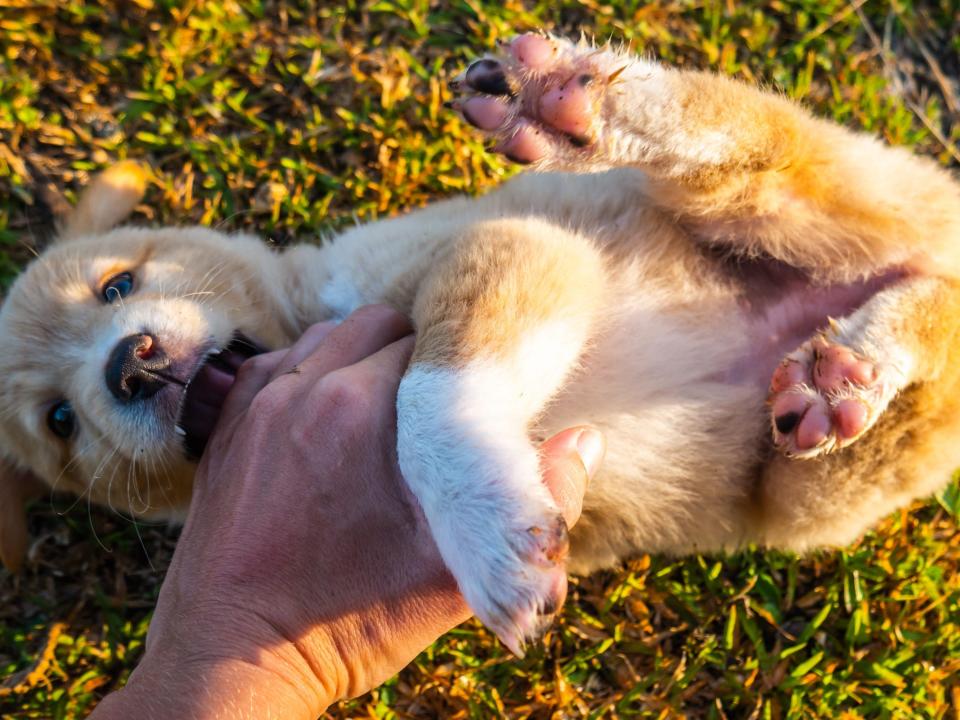
Puppies love to nibble, and it can seem harmless to allow them to bite your fingers during a play session.
But Joslin said that letting a dog munch on your hand at any time is actually telling them that it's alright to bite.
"If gently nipping your hand in play is OK, the puppy won't know that it's not OK to bite a child or other person that's trying to pet them," Joslin said.
If your dog tries to nibble your fingers, immediately remove your hand from their mouth and end the play session — they'll soon learn that biting isn't allowed.
You play tug-of-war with toys or clothing.
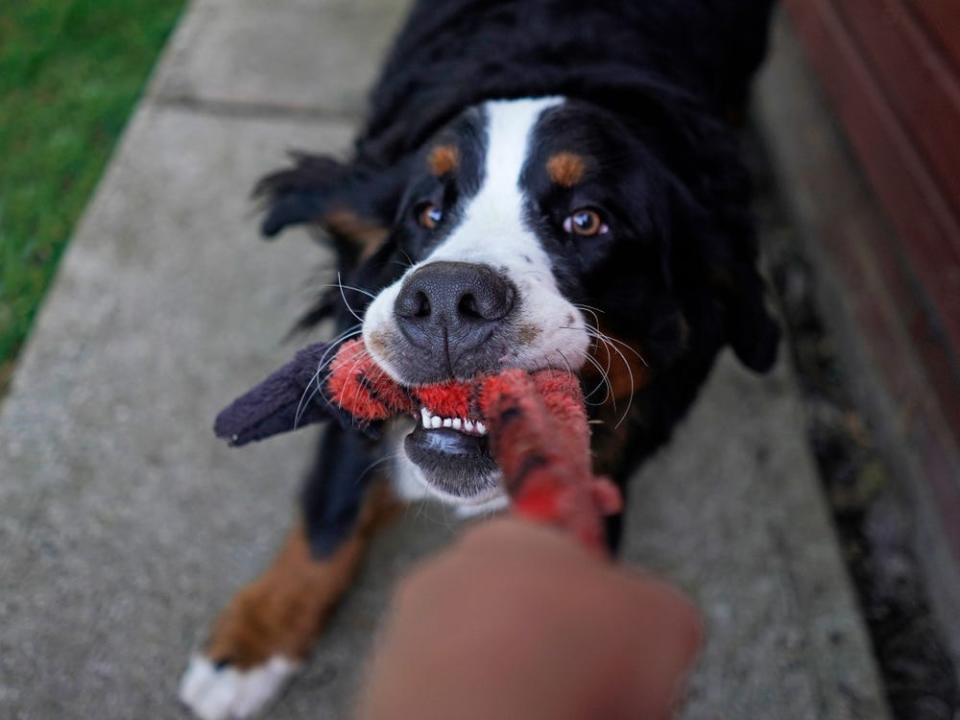
Using rope toys or spare pieces of clothing to play tug-of-war with your dog can be a good time in the moment but may lead to undesirable behavior and aggression in the future.
"Though this kind of play is fun for both the puppy and the parent, it's also very confusing," Joslin said. "For example, if tug-of-war is OK in play, then why is it wrong if the puppy wants to play tug-of-war with the socks on your feet?"
Instead of encouraging your dog to resist when you pull, try rewarding your pet for letting go of items you try to take from their mouth.
You use multiple words for the same thing.

Sara Ochoa, veterinarian and consultant for DogLab, told Insider that it can be confusing for a dog when their owners use multiple words for the same object or command.
"When training your dog, try to stick to the same keywords," Ochoa said. "It can be puzzling for a dog when you ask them to 'go potty' one day and 'go pee' the next day."
To make training easier, try to use one key phrase for every command and keep those words as short and distinct as possible.
You're not consistent with the house rules.
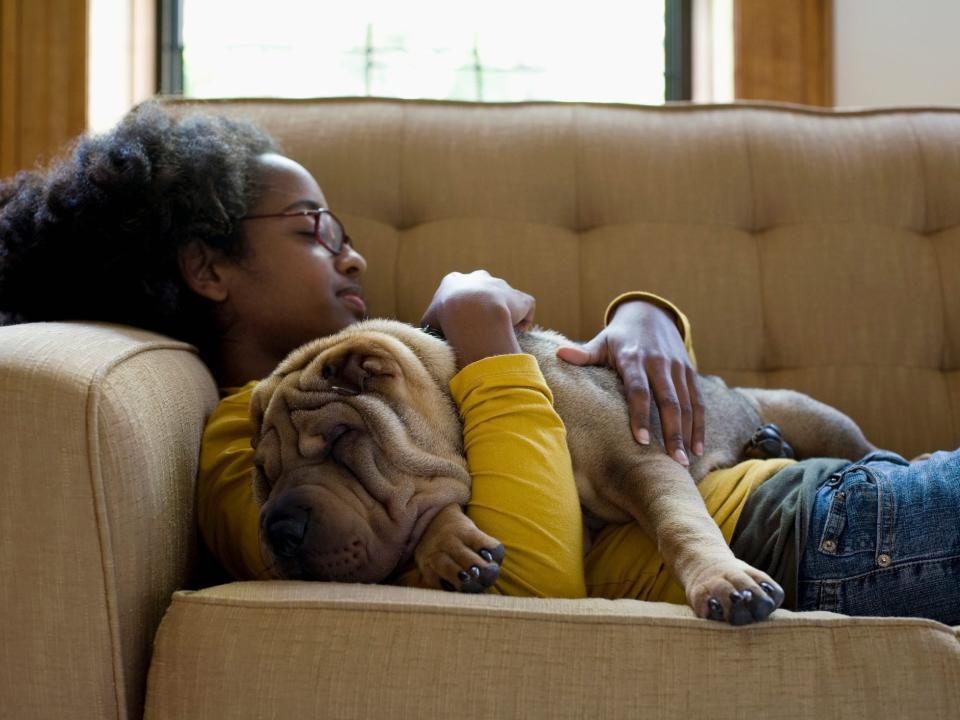
Ochoa said one of the most common ways owners confuse their dogs is by not being consistent with training and house rules.
"For example, letting your dog on the furniture one day and then scolding them for getting on the sofa the next will just confuse them," Ochoa said. "Try to keep the rules the same from one day to the next."
It's important to decide on house rules for your dog early on and stick with those decisions — otherwise, you run the risk of undoing their training and causing frustration for both parties.
You comfort them when they're acting fearful.

It's natural to want to soothe your pet when they're frightened, but veterinarian Heather Venkat told Insider that comforting a fearful pet can backfire.
"You can actually make your dog think it's good to be scared if you pet them and say 'good boy,'" Venkat said. "You're actually encouraging fearful behavior through sweet talk and petting."
Instead, pet owners should address the source of the fear — this may mean training your dog to be more comfortable around loud noises, visits to the vet, or unfamiliar people.
You give more attention to one pet than the other.
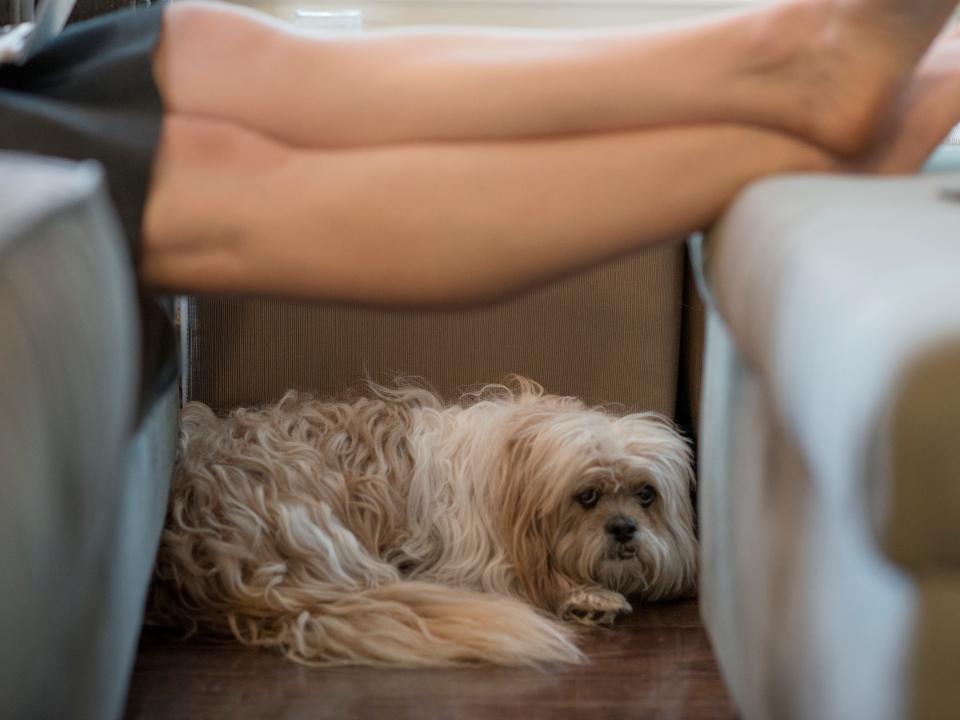
Showering one dog with praise and attention can make the other pets in the family feel neglected and stressed.
"If you always take one pet for car rides or give them treats more than the other, the other dog may become depressed," Venkat said.
This kind of inadvertent favoritism can easily happen when one dog is much smaller than the other or is recovering from a medical procedure, but try giving each pet equal one-on-one time so that they all feel loved.
You scold your dog for something they did hours ago.
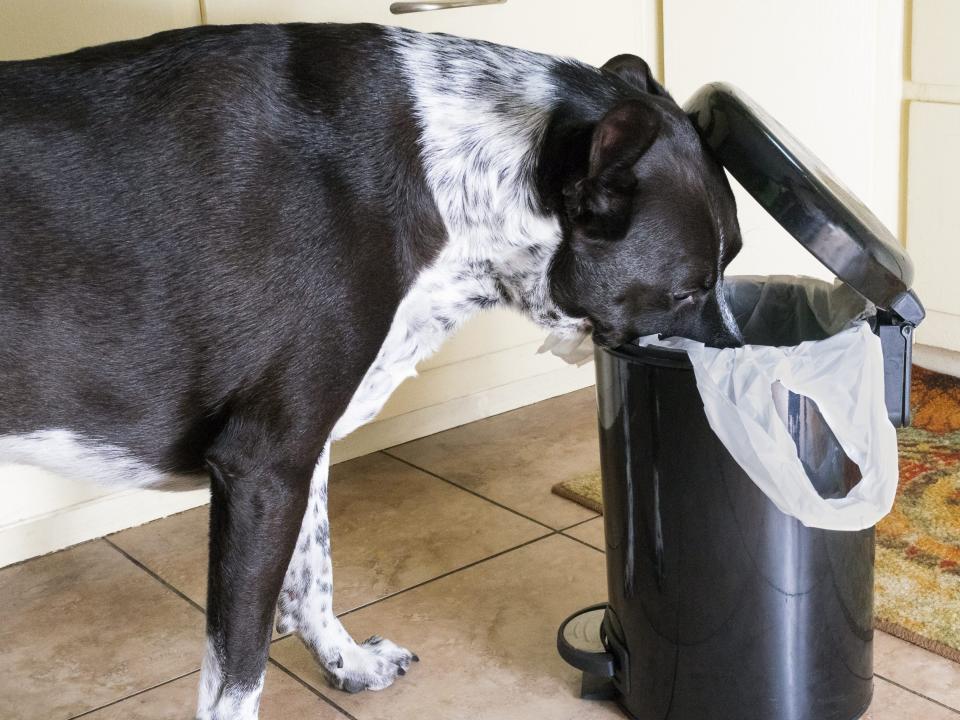
Dogs don't actually understand that their owner might be angry about something that happened in the past — so it won't do any good to get upset at a dog who has had an accident, ripped open the trash, or chewed on something valuable while you were away.
"Your dog cannot make the connection that you are mad about what he did earlier that day and will think you are punishing him for no good reason," Venkat said.
Instead, try to figure out why your dog made the mistake and provide training or modify elements in your home, like getting a trash can with a locking lid, to avoid it happening again.
You give them a treat too early or late during training sessions.
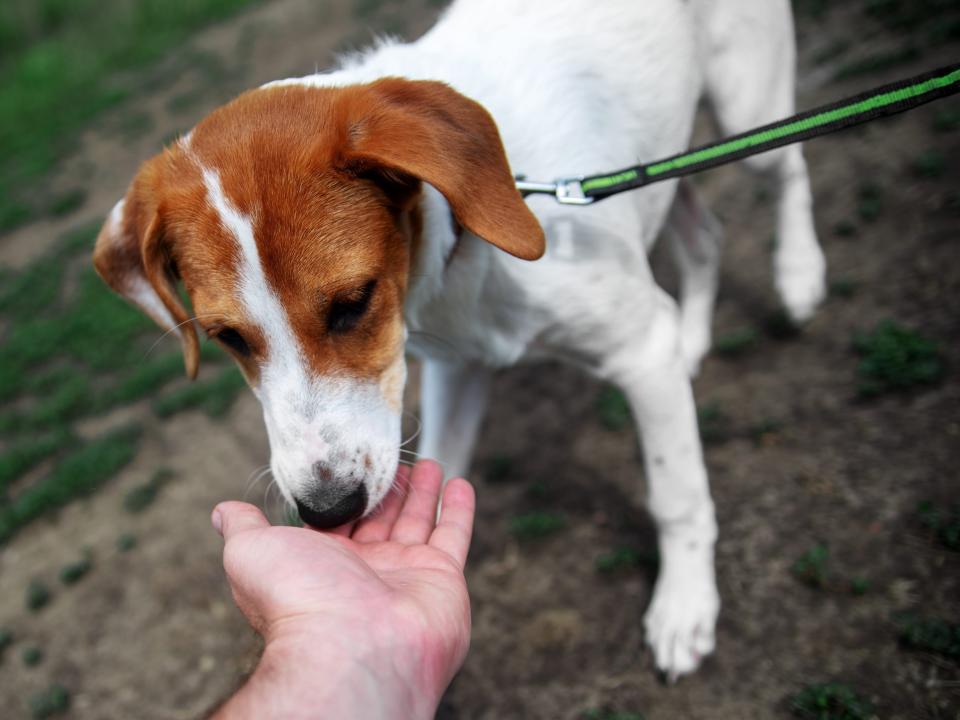
Emma Bowdrey, an ISCP-qualified dog behaviorist, told Insider that timing is crucial when it comes to training your pet.
"When doing something like training your dog to sit, it's so important to praise them or give a treat at the right moment," Bowdrey said. "If you give a treat too soon, they'll simply learn to hover. If you wait too long, the dog will attempt some other behavior to see if that gets them the treat."
She said that if you're training them to sit, you need to wait until your dog's bottom actually touches the floor before rewarding them.
You force a shy pet to interact with other dogs.

Many owners think that the solution to helping their pet overcome shyness is to force them to play with other dogs. However, Bowdrey said that this strategy can have the opposite effect.
"Forcing a shy dog into social situations with other dogs will often confuse them and intensify their fear," Bowdrey said.
Instead of overwhelming your pet by seemingly dragging them into a scary situation, you should try gradually decreasing their "trigger distance," the space from another animal at which your dog will start to react fearfully.
Slowly bringing your dog closer to others and stopping when they start to react negatively can help your pup become less shy.
You punish them for not acting like a human.
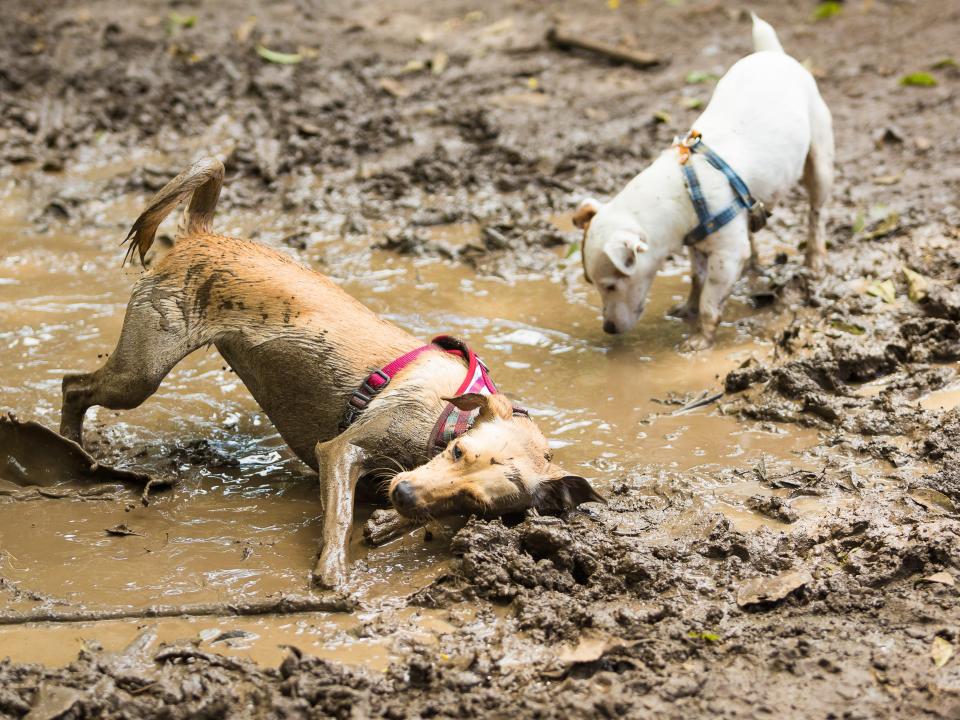
Dogs will be dogs, and it's no use chiding them for following their basic animal instincts.
"Dogs aren't humans with fur, and they're going to roll in the mud and do things that normal dogs do," Ochoa said. "Don't scold them for acting like a dog."
This means that you should expect pups to do things like sniff the rears of other dogs, bark at unexpected sounds, and eat food that has fallen on the ground. Even the best-trained pets will occasionally do things their owners don't approve of.
Read more:
Veterinarians share 11 ways you could be stressing out your dog without realizing
Veterinarians share 10 things you should never do to your dog
9 signs your dog doesn't like you, even if you think they do
Veterinarians reveal 12 things you should never do when buying toys for your pets
Read the original article on Insider

